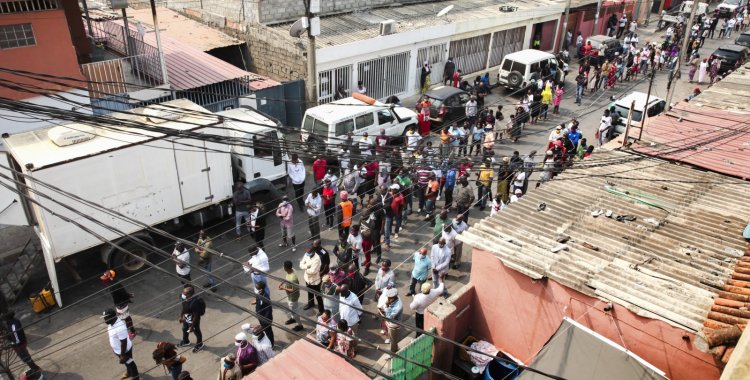At issue is the draft Law on the Statute of Non-Governmental Organisations, generally approved on the 25th by the National Assembly, which aims, according to the Government, to adjust and update the regulation on NGOs.
The organizations, in a press conference, called the attention of the national and international community "to the maneuver of the executive power in having the approval of a law that bears or maintains some resemblance to presidential decree n.º 74/15, of March 24, Regulation of NGOs, which was considered unconstitutional by the Constitutional Court".
According to the organisations, the current proposal "has a stigmatizing perspective on NGOs, suggesting that they are promoters of money laundering, promoters of terrorism and responsible for the regional asymmetries verified in Angola".
The Minister of Justice and Human Rights, Marcy Lopes, said, in the presentation of the law proposal in parliament, that the organization and operation of NGOs, under the terms of the current law, "creates complex situations, either due to the difficulty of supervision by the State bodies, as well as some resistance from donors" and "their own organizations, especially international ones, in complying with the laws in force in the country".
Marcy Lopes underlined that donors, in many cases, "go to the point of determining the places where a given NGO should spend resources and with whom and when to do it", recalling that Angola is supervised by international institutions with regard to rules of 'compliance' in financial transactions.
On this subject, the president of Associação Mãos Livres, Guilherme Neves, considered that the question raised serves only for distraction, when in fact, it intends to "have a legal device that facilitates its pretensions".
"Basically, what they want is for us to be dependent on them, in violation of Article 48 of the Constitution and the Law of Associations. There is another basis, which the proponent alleges, which is to fulfill some commitments assumed with international and regional instruments in the fight against money laundering capitals", he said.
Guilherme Neves stressed that after consulting the recommendations of these instruments there are around 40 recommendations and, in 2012, they were in Angola to carry out an evaluation, and that "at no time does it recommend that the civic space be restricted".
"On the contrary, he encourages respect for international instruments for the promotion and defense of human rights. The instrument recommends that it is necessary to assess the risks of these NGOs, which perhaps could easily be used for unconfessed purposes, but in the case of Angola it does not represent there is no risk and we are even well registered in relation to other SADC countries [Community for the Development of Southern African Countries], for example, Mozambique", stressed Neves.
"What is intended, in fact, is to control this third sector, perhaps to facilitate some positions or to remove some critical voices, that is our understanding, because all the foundation that is raised does not reap", he added.
The president of the Justice, Peace and Democracy Association (AJPD), Serra Bango, said that the discussion to improve the proposal will be with the National Assembly, whose discussion and proposals to be presented will be based on elements of the proposal.
Serra Bango said that they agree that "Angola is not a stage for terrorist financing, Angola is not a stage for money laundering".
"It is not the NGOs that carry out money laundering, the processes that are in court (...) are not from NGOs and we have this very clear", he observed.
The NGOs call for the bill to be subject to broad public consultation and for a bill to be drawn up "that results from joint work, which includes the Government, political parties, NGOs and civil society in general". the exercise of the right to association.







